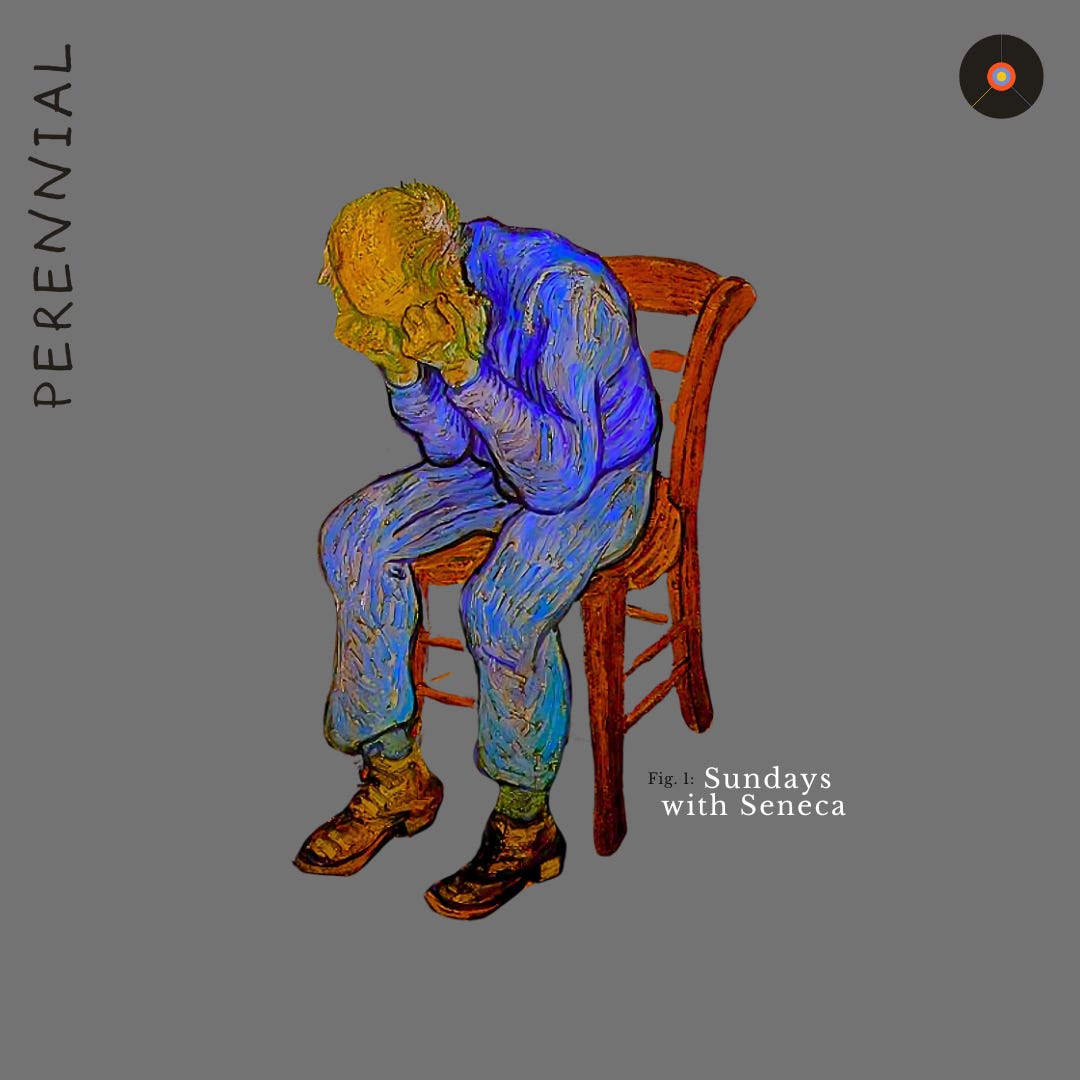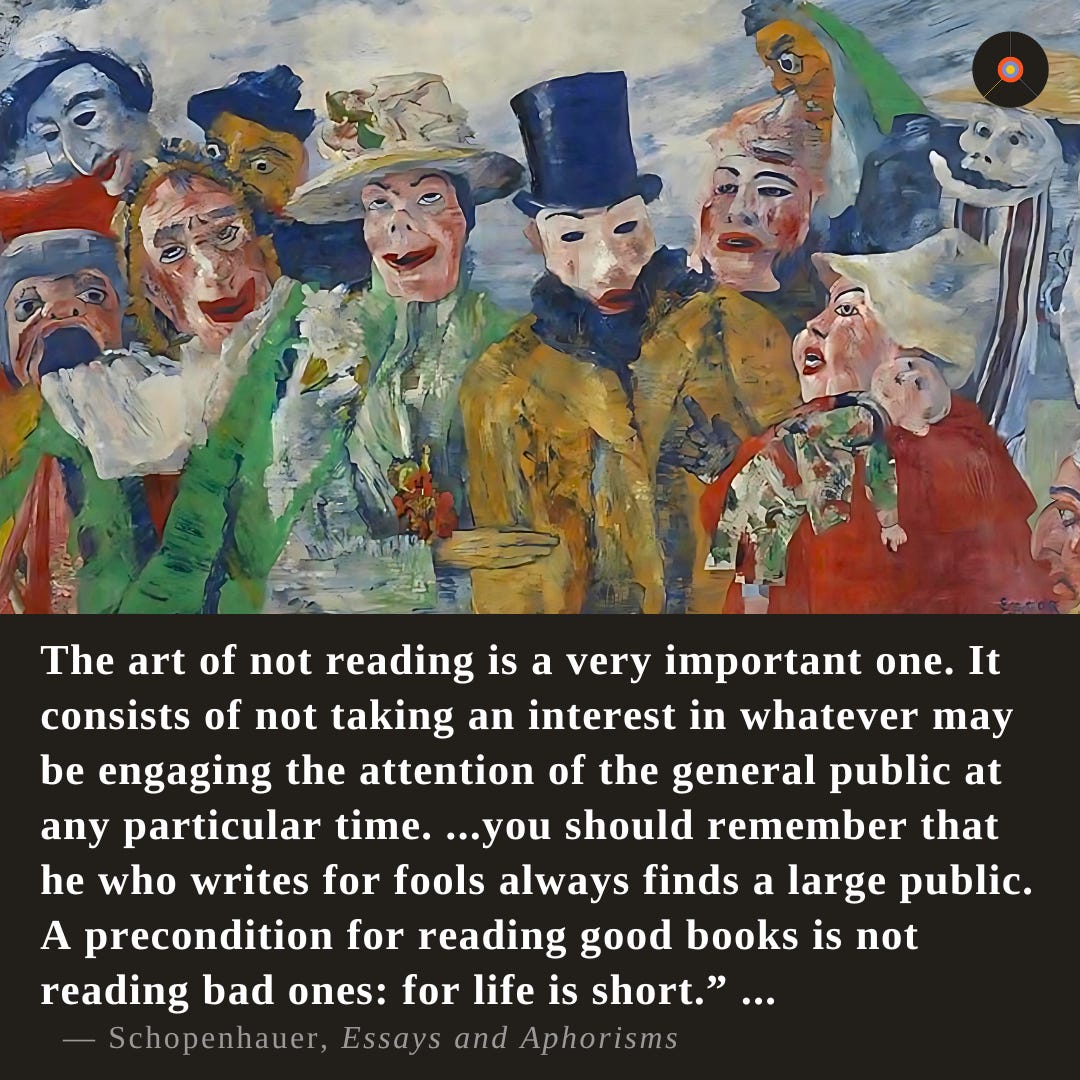🏛️ Sundays with Seneca
Sundays with Seneca is a weekly series exploring Lucius Annaeus Seneca’s writings and Stoic philosophy. Each meditation includes selected passages from one of Seneca’s letters, searching for ancient lessons on the art of living.
Listen on Apple Podcasts, Spotify, or YouTube.
Seneca on a well-ordered mind
In this week’s Sundays with Seneca series, we’re exploring selected passages from a letter known today as On Discursiveness in Reading.
Judging by what you write me and what I hear, I am forming a good opinion regarding your future. You do not run hither and thither and distract yourself by changing your abode, for such restlessness is the sign of a disordered spirit. To my thinking, the primary indication of a well-ordered mind is a man’s ability to remain in one place and linger in his own company.
However, be careful lest this reading of many authors and books of every sort may make you discursive and unsteady. You must linger among a limited number of master thinkers and digest their works if you are to derive ideas that will win a firm hold in your mind. Everywhere means nowhere. When a person spends all his time on foreign travel, he ends up having many acquaintances but no friends. And the same thing must hold true of men who seek intimate acquaintance with no single author, but visit them all in a hasty and hurried manner. …
Seneca continues,
Accordingly, since you cannot read all the books which you may possess, it is enough to possess only as many books as you can read.
‘But,’ you reply, ‘I wish to dip first into one book and then into another.’ It is a sign of an overnice appetite to toy with many dishes; when they are manifold and varied, they cloy but do not nourish. So you should always read standard authors, and when you crave a change, fall back upon those whom you read before. Each day, acquire something that will fortify you against poverty, against death, and indeed against other misfortunes as well, and after you have run over many thoughts, select one to be thoroughly digested that day.
This is my custom; from the many things I have read, I claim one part for myself.
Seneca concludes,
The thought for today is one which I discovered in Epicurus, for I am wont to cross over even into the enemy’s camp—not as a deserter, but as a scout. He says: “Contented poverty is an honorable estate.” Indeed, if it be contented, it is not poverty at all. It is not the man who has too little, but the man who craves more that is poor. What does it matter how much a man has laid up in his safe or in his warehouse, how large his flocks are, and how fat his dividends are if he covets his neighbor’s property and reckons not his past gains but his hopes of gains to come? Do you ask what is the proper limit to wealth? It is, first, to have what is necessary and, second, to have what is enough. Farewell.
Follow Us: Instagram | Youtube
Reflection Exercise
Consider reflecting on Seneca’s letter, “What point or idea seems most applicable to your life?” A consistent theme in Seneca’s writing is a call to find clarity and avoid wandering from place to place. He’s referring to books in this letter, but the lesson applies to various aspects of life.
Similarly, in her book On Reading Well, Karen Swallow Prior (a previous podcast guest) describes the art of reading well this way,
It is not enough to read widely. One must also read well. One must read virtuously. The word virtue has various shades of meaning, but in general, virtue can most simply be understood as excellence. Reading well is, in itself, an act of virtue, or excellence, and it is also a habit that cultivates more virtue in return. …
Prior explains that reading virtuously includes the attentiveness necessary for deep reading (as opposed to simply skimming or churning through books); it requires the wisdom of patience. Reading well requires time and attention—or, in Seneca’s words, “a well-ordered mind.”
—
Thank you for reading; I hope you found something useful.
Until next time, be wise and be well,
J.W.
P.S. New here? Catch up on previous volumes in the archive!















Seneca on a well-ordered mind